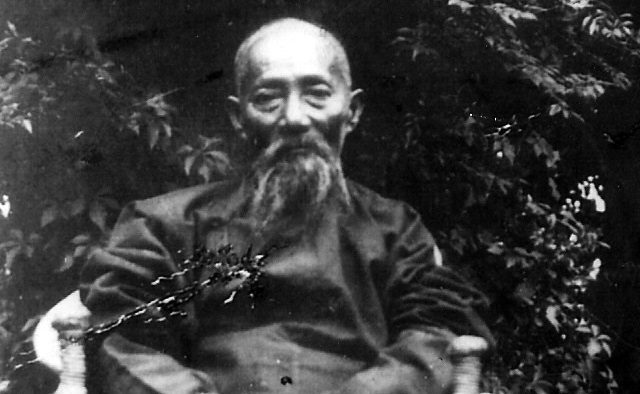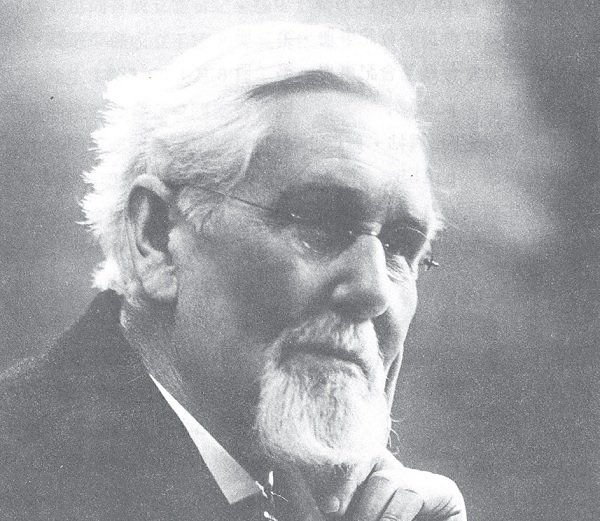When a Chinese Immigrant Became an Extraordinary Missionary:
Interview with Lily Yang
By Dr. Jay Zinn

Lily, the story of your great-grandfather, Kao Zhang, and the young missionary, who taught him the gospel is a great demonstration of how God can use ordinary people to do extraordinary things. Just one sermon touched your great-grandfather and sent him on a lifelong mission that few have dared to attempt. Tell us about it.
This all began with a young man in Scotland named James Laidlaw Maxwell. He was a prominent surgeon in England and answered a call from the Lord to go to China in 1864. In 1865, he came to Taiwan. He was preaching at the marketplace near a Buddhist temple during the first Sunday or so after he arrived. My great-grandfather was a young man who came from China to try his luck. He was on his way to the temple to ask the gods to help him win at gambling. James Maxwell was also there at the site, and my great-grandfather noticed this “strange” young man. He stopped to listen and remained through the entire message. Intrigued by what he heard, he followed Maxwell to his residence and asked to become a disciple to learn more about Jesus. It was the custom to learn from a master for certain skill or knowledge, and as a disciple you would stay with and serve the master in order to learn from him.
What happened next?
It is told that he learned from Dr. Maxwell for approximately a year and a half. Then he was sent out to spread the good news around 1866. Until he died in 1912, my great-grandfather preached the gospel throughout the island of Taiwan and helped to plant approximately 150 churches.
What kind of dangers and personal sacrifices did he place himself in to accomplish his mission?
Travel in Taiwan during mid-19th century was dangerous since there were bandits on the road who would rob and kill travelers. Unless one was extremely wealthy and had a horse, walking on two legs was the only way to travel. When he approached a village or tribe he usually visited the elders (senior leaders) first. If the elders decided to listen to him he would be received into their homes. If they decided his message was nonsense he could be chased out of the village by sticks and stones. We were told, however, that God’s angels protected him many times; and he spoke with such authority that people would listen to him most of the time. There was one incident when he was tied up and accused of helping English missionary surgeons kill people. He was put into a dungeon for 30 days, but survived.

James Laidlaw Maxwell
What type of miracles did he see? Were they a normal part of his ministry to the lost?
Most commonly he would pray for sick people or sick animals, like pigs, and they would get healed. Many times he encountered bandits who saw many “soldiers” behind him and ran away. They were angels. Eventually he won the respect of bandits and there was a saying that one should not touch anything that belonged to Uncle Tiong. It became a common rule that bandits wouldn’t harm him, or touch anything that belonged to him.
How many years did he spend in his missionary travels? What distances did he cover?
He started his circuit preaching from 1866 till about 1905, covered the south and east part of Taiwan – more than half of Taiwan. Besides, to get to the east part of Taiwan one had to climb over more than 8,000-foot high mountains and yet he conquered the area for the sake of the gospel.
You said that he actually planted churches. Did he do this when he returned to the villages where he had sowed the seed of the gospel, or did he immediately choose shepherds? How did he choose the leaders or shepherds? Was there any type of follow-up by returning to these villages?
I can’t say that I know all the details. What I heard when I was a child is that if the elders of a certain village liked what he preached he would stay for a while. And then he would come back with more believers/preachers/missionaries to baptize and set-up elders in the village and start a church among them. I believe it is very much like what St. Paul did in the first century.
How did his family deal with his absence during those years? What was the fruit or outcome of their lives? Did they accept this assignment of God for this man who was a husband and a father? They certainly had to sacrifice him to the kingdom, too, which had to be hard.
I was told by my great aunt (his daughter) when I was a child that each trip my great-grandfather took for a mission usually lasted for months. He usually left at early morning before sunrise like three o’clock or so. He would wake every single person from the oldest to the youngest and hold a family worship, singing hymns and blessing everyone, saying that if they didn’t see him again they would meet in heaven. Yes, he was absent most of the time. Life was not easy. His wife, my great-grandmother, died young (not even 40), left 8 kids (five boys and three girls) to take care of themselves. The older ones would take care of the younger ones, and eventually they grew up. My grandfather was the fourth boy. He recalled that they all had to work to support their own study and living. They were all greatly blessed by the Lord – the first and second sons went to colleges and theological seminaries and became pastors; the third, fourth and fifth sons became medical doctors. All three girls were educated and married to a pastor, a professor and a doctor, separately. All of them served the Lord faithfully all their lives.
What was the end of his life like? Did he have any regrets? Did he leave anything behind for his children and his children’s children?
He had no savings of his own, so eventually when he was retired and aged he had to be supported by his sons who eventually were all quite very successful. Naturally he did not leave any material inheritance to his descendants. Before he died, he told his children and grandchildren that all his life he had been toiling for his Lord, that he did not have material things to leave for them, but what he would leave for them was a living inheritance, that is the Book – God’s words. And then he claimed that if any of his descendants follow God’s words he/she would be blessed by God. This became all of his children’s inheritance and today it is mine too.
How would you summarize your great-grandfather’s life in the light of our theme in this issue, i.e. God using ordinary people to do extraordinary things? To the point that our legacies outlive us, how would you say this simple man’s life outlived his pilgrimage on earth into the subsequent generations?
My great-grandfather was not even properly educated – he was considered illiterate (not being able to read Chinese characters, he learned his Bible by Roman spelling, which was created by missionaries to help illiterate people read the Bible in those days). He did not have proper transportation, and did not have the right tools – commentaries of any kind, or a typewriter, or phone, or anything that one can’t live without today. He also didn’t write well. He proved that God’s work is “not by might nor by power, but by my Spirit” (Zechariah 4:6). Many of my family members throughout the generations became pastors, preachers, and missionaries. We all follow him – a most humble great-grandfather to serve the Lord. What he claimed for his descendants, that as long as you follow the Word you will blessed, become reality in my family.
In closing, how would you say your great-grandfather’s life has impacted your walk with God? Do you believe you are carrying the torch he had passed on down to your generation?
I was born almost a half century after he died and yet I am totally inspired by him. Each time I fall into a trap of self-pity, doubting about the calling, about myself, about His provision, and about situations, I think of my great grandfather who did not have any of what I have today and yet planted so many churches and influenced thousands of souls into eternity. Thinking of him, all the difficulties turn into all possibilities that enable me to praise, refocus, and continue.


 Dr. Jay Zinn lives in the college town of Davidson, NC where he pastors River’s Edge Church. He is also a freelance, published artist and the author of the novel The Unveiling. For more information you may visit his websites at www.jayzinn.com and www.jayzinnart.com
Dr. Jay Zinn lives in the college town of Davidson, NC where he pastors River’s Edge Church. He is also a freelance, published artist and the author of the novel The Unveiling. For more information you may visit his websites at www.jayzinn.com and www.jayzinnart.com